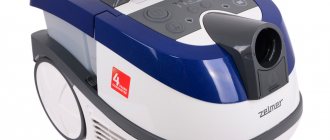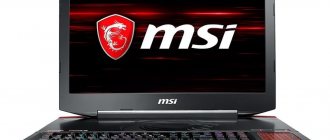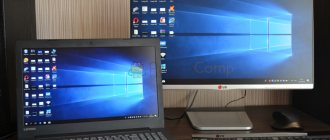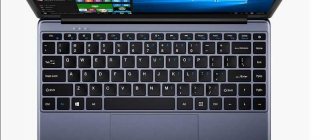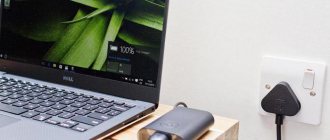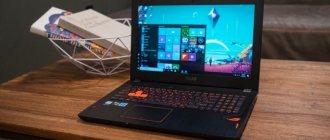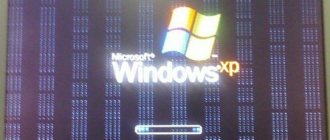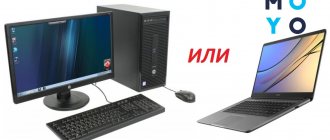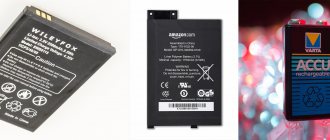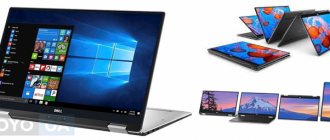Why is a netbook often called a compact laptop?
Portable devices have a similar design, namely, they have a thin display that is attached to the system unit with special hinges. Thus designated computers can be folded, that is, closed and opened, like a book. But despite this, all portable devices differ from each other. For example, the difference between a netbook and a laptop is its dimensions.
The latter is much larger in size. The fact is that netbooks have a display diagonal of no more than 12 inches, but their components are identical. The designated computers are equipped with:
- Microprocessor;
- Optical drive;
- Hard drive;
- Keyboard;
- RAM.
Among the advantages, it is necessary to note the ability to take any of the indicated devices with you on the road. That is, there is no connection between a laptop computer and a power supply due to the presence of a battery that can hold a charge for a certain time.
Laptop and netbook portability
What is the difference between a netbook and a laptop? The main criterion for the designated computing equipment is their compactness, but portability is based on the following indicators:
- A complete package, since the display and the system unit are interconnected.
- Small in size, because a netbook and ultrabook look like a book with medium dimensions, and a laptop has slightly larger dimensions.
- The presence of a rechargeable battery allows you to work with a computer device for a short time without recharging it from the mains.
Technical characteristics of laptop and netbook
Despite the convenience of a portable device, they choose it based on its technical characteristics. Accordingly, it is necessary to outline the difference between laptops and netbooks.
| Components | Laptop | Netbook |
| Work without recharging | 5 o'clock | 8 ocloc'k |
| Portability | 20 inches | 12 inch |
| HDD | 2 terabytes | 200 GB |
What both devices have in common is the use of such functions as the ability to connect bluetooth, WI-FI, NFS, and also have USB ports. As for the video and sound cards, their audio and video playback is not of high quality. But the laptop, unlike “its smaller brother,” provides the ability to download large games.
Reference! Due to their small size, laptop computers are limited by permanent memory, as well as random access memory, and they have a reduced microprocessor frequency.
What is the difference between a laptop and an ultrabook
It would seem that there are not so many differences between them. But this is not so, there are plenty of them. Let's take a closer look.
External differences
As mentioned above, the main difference that immediately catches your eye is the size and weight. The Ultrabook is much thinner and lighter, and there are several reasons for this:
- simpler filling;
- The body is not made of aluminum, like a laptop, but of plastic.
The thickness of an ultrabook usually does not exceed two centimeters.
Hardware differences
Ultrabook performance is less. With all this, it is impossible to replace the cooling system, add “operators” and much more. In fact, its capabilities are severely limited. At the same time, in laptops you can influence the operation of the system by improving the operating state, which is very convenient.
Also, ultrabooks do not have a separate video card, so they are not suitable for working in graphic editors, which are necessary for web designers.
Battery
An ultrabook uses much less power than a laptop, so its battery is much smaller and lighter. At the same time, it sets relatively slowly - most often it lasts for 5 hours.
With laptops everything is much more complicated. Classic models can work autonomously for about 1.5–2.5 hours, since the laptop takes a lot of energy. Only special models with extended battery life can operate longer – 10–15 hours. True, their cost will be on the verge of fantasy.
Laptop and netbook keyboard
Every computer has a keyboard for ease of use, but in laptops and netbooks the layout of the available keys is significantly different. This is due to the size of the directly designated portable devices. For example, on laptops the keyboard can have a maximum of 120 keys, but on netbooks there can be no more than 80 keys.
In addition, they are small in size and placed close to each other. Accordingly, a netbook has fewer function keys than the same laptop, based on this, the last noted device is most often chosen by users for gaming purposes.
Definition of concepts
Part of the names of all of the above devices is the word “beech”. Most readers of our site will translate this title as a book and they will be right. The shape of both the laptop and netbook, as well as other “beeches,” resembles a book.
As for the second words that are included in the names of the devices, they precisely determine the difference between them.
A laptop (from the English Note - notepad) is a mobile portable computer that has a lightweight body. One part of which contains the screen, and the second the keyboard. Laptops were designed to be convenient portable computers. They were originally intended for entering notes and other data, which were then used on more powerful devices. Hence the name (Note – notepad). Today, when the characteristics of laptops are almost as good as those of desktop PCs, they are used everywhere.
Laptop
A netbook (from the English Net - network) is a mobile computer whose main task is to surf the Internet comfortably. Netbooks typically have a smaller screen size than laptops. Also, such devices have a simpler filling. This means they are somewhat cheaper.
An ultrabook is a mobile computer characterized by its small thickness and weight. Today in industrial design there is a trend towards reducing the thickness of various electronic devices. Therefore, all modern laptops can safely be considered ultrabooks.
Chromebook is a laptop with the Chrome OS operating system. This operating system is from Google, which allows you to use applications for work without installing them on your device. Essentially, a Chromebook is an input device with which the user controls his cloud server.
Laptop - (from the English Lap knees) is a collective name for portable mobile devices, which is often called laptops in English-speaking countries. Today, thanks to increased certification and classification of such devices, the term is used less and less.
Difference between laptop and netbook software
The operating system of netbooks and laptops also differs due to their dimensions. After all, the smaller the computer device, the fewer functions and capabilities it has.
What is the difference between these types of computer equipment, and why do you need to pay special attention to such an indicator when purchasing as an OS? For example, laptops can install operating systems such as Windows, iOS or Linux. Additionally, users can work with other available software on the designated computer equipment. Namely:
- Text editors:
- Programs for Photoshop;
- Various browsers;
- Programs of a specific nature;
- Video and audio converters.
Price
The pricing policy for portable PCs with large displays and compact laptops with thin bodies is different: a productive netbook with average specifications will cost less than a low-budget laptop. For comfortable work or quickly searching for information on the Internet while traveling, a netbook is a good price-to-hardware ratio. This gadget is suitable for those who need a device larger than a tablet, but smaller than a computer with an affordable price tag.
Design features and limitations of a netbook
Netbooks, due to their reduced size, have undergone some changes, namely limited functionality. For example, they do not have the ability to use DVDs and CDs, since there is no space to accommodate an optical drive. Although, today, mostly everyone uses flash drives or removable hard drives to store data.
It is important to know! Using USB drives, you can easily install software and OS (operating system) on any computer device.
Among the features of netbooks, it should also be noted that it can work autonomously twice as long as a laptop. It is also necessary to indicate that there is another type of computer device on sale, an ultrabook. The difference between a laptop and an ultrabook is that the latter is quite thin, even compared to a netbook. In addition, it is quite expensive, but has high operating speed, but the functionality is somewhat limited due to its small dimensions.
Which is better: ultrabook or laptop
The difference between a laptop and an ultrabook - which is better?
What is the difference between a laptop and an ultrabook? Many buyers often wonder: which is better, a laptop or an ultrabook? Let's figure out once and for all what is the difference between these outwardly similar devices.
The laptop got its name from the English notebook (notebook, notebook) - it is a mobile version of a personal computer that has all its characteristics, but is much smaller in size.
Ultrabook is a new class of mobile laptops first offered by Intel. The main difference from laptops can be considered its minimal thickness, and the fundamental difference is the ultra-powerful filling with minimal dimensions.
What is an ultrabook from a technical point of view?
- Minimum body thickness.
- Minimum weight.
- They operate under the control of Intel processors.
- As a rule, the amount of RAM does not exceed 4 GB, but recently some ultrabook models have received RAM up to 8 GB.
- Almost all models do not have an optical drive for reading discs.
- The battery capacity is high enough to ensure long battery life.
- The battery is built-in (there is no quick replacement option).
- The main logical elements: processor, memory, video card are built-in.
- High-speed SSD drives are mainly used to store user information, but recently a hybrid SSD+HDD system is often used.
What is the difference between a laptop and an ultrabook
- An ultrabook case is always thinner than a laptop case, which means it weighs less.
- Thanks to the thin body, the appearance of the ultrabook is much more pleasant and convenient.
- The battery life of an ultrabook is longer than that of a laptop.
- As a rule, ultrabooks are less powerful than laptops, thanks to less powerful internal components (processor and video card), the emphasis is on energy efficiency and minimal heat dissipation. The use of high-speed drives in ultrabooks significantly reduces response time, which means that the speed of reading and writing information is faster.
- Another difference can be considered a lower price compared to the price of a laptop, at least that’s what Intel said, in fact, this is a little different.
- Recently, new ultrabook models have begun to be equipped with a matrix that supports touch control technology.
- Some companies are betting on the production of so-called hybrid devices that combine the capabilities of an ultrabook and an even more mobile tablet.
From all of the above, we can conclude that there is no better concept; when choosing a laptop or ultrabook, you need to focus on the advantages that you need.
When a netbook is indispensable
When the question arises as to whether it is better to choose a netbook or a laptop, the former is indispensable when the extra weight gets in the way. For example, when going on a trip, the volume and weight of the cargo is calculated, and accordingly you will have to pay extra for the excess. It is also very inconvenient to carry heavy things with you when going on vacation or on a business trip. In addition, the designated computer device is considered comfortable to use because it has:
- Greater speed of operation, therefore it is preferable to use it for business purposes.
- The cost of the gadget is reasonable, even if you purchase a model with increased power.
- Another advantage is the long period of operation of the device in offline mode.
Even taking into account the fact that netbooks have a small amount of built-in memory, they can synchronize data using various cloud services. In this case, it is necessary to outline the difference between a netbook and an ultrabook. The latter has greater productivity and smaller dimensions, but the cost is higher.
When is it better to use a laptop?
Laptops are functionally the same as desktop computers, but differ in the ability to work without power for a certain period of time. Thanks to such computing technology, it is possible to perform fairly large amounts of work in full-version programs without being tied directly to one place.
In addition, laptops provide the ability to watch movies, play games, and edit text, images and videos. These criteria distinguish a laptop from a netbook.
In conclusion, it must be said that before buying one of the presented computer devices, you should indicate for what purpose such equipment is needed. After all, the differences between them are significant not only in functionality, but also in cost.

